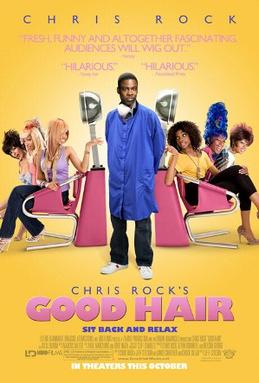
Pierre Bourdieu was a French sociologist and public intellectual. Bourdieu's contributions to the sociology of education, the theory of sociology, and sociology of aesthetics have achieved wide influence in several related academic fields. During his academic career he was primarily associated with the School for Advanced Studies in the Social Sciences in Paris and the Collège de France.

Distinction: A Social Critique of the Judgement of Taste by Pierre Bourdieu, is a sociological report about the state of French culture, based upon the author's empirical research from 1963 until 1968. The English translation was published in 1984, and, in 1998, the International Sociological Association voted Distinction as an important book of sociology published in the 20th century.
The Stony Brook Film Festival, presented by Island Federal Credit Union and produced by Staller Center for the Arts at Stony Brook University, presents a program of new, independent films every summer since 1995. Features and short films from the U.S. and around the world are screened over ten days at Staller Center, which has been the venue since the festival's beginning. The festival is the brain child of the Staller Center's current director Alan Inkles. The festival continues to gain momentum and has gathered a faithful following, drawing a crowd of over 15,000 people.

Paris Is Burning is a 1990 American documentary film directed by Jennie Livingston. Filmed in the mid-to-late 1980s, it chronicles the ball culture of New York City and the African-American, Latino, gay, and transgender communities involved in it.
Julie Anne Buck is an American film producer, collage artist, photographer, experimental filmmaker, and film archivist.
Black is beautiful is a cultural movement that was started in the United States in the 1960s by African Americans. It later spread beyond the United States, most prominently in the writings of the Black Consciousness Movement of Steve Biko in South Africa. Black is beautiful got its roots from the Négritude movement of the 1930s. Negritude argued for the importance of a Pan-African racial identity among people of African descent worldwide.

The sociology of education is the study of how public institutions and individual experiences affect education and its outcomes. It is mostly concerned with the public schooling systems of modern industrial societies, including the expansion of higher, further, adult, and continuing education.
International Documentary Association (IDA), founded in 1982, is a non-profit 501(c)(3) that promotes nonfiction filmmakers, and is dedicated to increasing public awareness for the documentary genre. Their major program areas are: Advocacy, Filmmaker Services, Education, and Public Programs and Events.

Nadia's Friends is a documentary which follows filmmaker Chanoch Zeevi as he travels through Israel exploring how Zionism has evolved since he was a child. Zeevi attended elementary school in the religious Zionist village of Kfar Haroeh, where his classmates represented a cross-section of Israeli society. They included Jews of every background: Ashkenazi, Sephardi, religious, secular, and even one Arab girl —Nadia, for whom the film is named. Now, more than twenty-five years after graduating from elementary school, Zeevi has organized a class reunion that brings together men and women whose lives have diverged from the original journey begun in Kfar Haroeh.

Zagreb Film Festival (ZFF) is an annual film festival held since 2003 in Zagreb, Croatia. Focusing on promoting young and upcoming filmmaker, the festival is widely considered to be one of the most important and influential cultural events in Croatia. It also regularly features several international programmes for the filmmaker's first or second films made.
Burning the Future: Coal in America is a 2008 documentary film produced and directed by David Novack. The film focuses on the impacts of mountaintop mining in the Appalachians, where mountain ridges are scraped away by heavy machinery to access coal seams below, a process that is cheaper and faster than traditional mining methods but is damaging to the environment. Some environmental problems discussed in the film include disfigured mountain ranges, extinct plant and animal species, toxic groundwater, and increased flooding. The film's run time is 89 minutes. In 2012, it was rereleased in a shorter, updated version, that was created for public broadcast on PBS. This new version of the film's run time is 56 minutes.
DOX BOX is a nonprofit institution for support and training in documentary film-making. Based in Berlin since 2014, with one foot in Europe and the other in the Arab/African region, it proposes carefully designed programs targeting diversity, skills transfer and alternative visual perspectives. The mission is to support distinct and singular voices from the region to ensure that a vibrant, growing and inclusive space for documentary film-making continues to thrive.

Esther Anderson is a Jamaican filmmaker, photographer and actress, sometimes listed in credits as Ester Anderson.

Thomas Allen Harris is a critically acclaimed, interdisciplinary artist who explores family, identity, and spirituality in a participatory practice. Since 1990, Harris has remixed archives from multiple origins throughout his work, challenging hierarchy within historical narratives through the use of pioneering documentary and research methodologies that center vernacular image and collaboration. He is currently working on a new television show, Family Pictures USA, which takes a radical look at neighborhoods and cities of the United States through the lens of family photographs, collaborative performances, and personal testimony sourced from their communities..

Good Hair is a 2009 American documentary film directed by Jeff Stilson and produced by Chris Rock Productions and HBO Films, starring and narrated by comedian Chris Rock. Premiering at the Sundance Film Festival on January 18, 2009, Good Hair had a limited release to theaters in the United States by Roadside Attractions on October 9, 2009, and opened across the country on October 23.
Documentary mode is a conceptual scheme developed by American documentary theorist Bill Nichols that seeks to distinguish particular traits and conventions of various documentary film styles. Nichols identifies six different documentary 'modes' in his schema: poetic, expository, observational, participatory, reflexive, and performative. While Nichols' discussion of modes does progress chronologically with the order of their appearance in practice, documentary film often returns to themes and devices from previous modes. Therefore, it is inaccurate to think of modes as historical punctuation marks in an evolution towards an ultimate accepted documentary style. Also, modes are not mutually exclusive. There is often significant overlapping between modalities within individual documentary features. As Nichols points out, "the characteristics of a given mode function as a dominant in a given film…but they do not dictate or determine every aspect of its organization."
The Documentary Organization of Canada (DOC) is a non-profit organization representing the interests of independent documentary filmmakers in Canada. Founded as the Canadian Independent Film Caucus (CIFC) in the 1980s Canada.
Educational capital refers to educational goods that are converted into commodities to be bought, sold, withheld, traded, consumed, and profited from in the educational system. Educational capital can be utilized to produce or reproduce inequality, and it can also serve as a leveling mechanism that fosters social justice and equal opportunity. Educational capital has been the focus of study in Economic anthropology, which provides a framework for understanding educational capital in its endeavor to understand human economic behavior using the tools of both economics and anthropology.
Barbara McCullough is a director, production manager and visual effects artist whose directorial works are associated with the Los Angeles School of Black independent filmmaking. She is best known for Water Ritual #1: An Urban Rite of Purification (1979), Shopping Bag Spirits and Freeway Fetishes: Reflections on Ritual Space (1980), Fragments (1980), and World Saxophone Quartet (1980).

Ayoka "Ayo" Chenzira is an independent African-American producer, film director, television director, animator, writer, experimental filmmaker, and transmedia storyteller. She is the first African American woman animator and one of a handful of Black experimental filmmakers working since the late 1970s. She has earned international acclaim for her experimental, documentary, animation, and cross-genre filmmaking productions. Her work, as well as her efforts as one of the first African American woman film educators, have led some in the press to describe her as a media activist for social justice and challenging stereotype representations of African Americans in the mainstream media.









